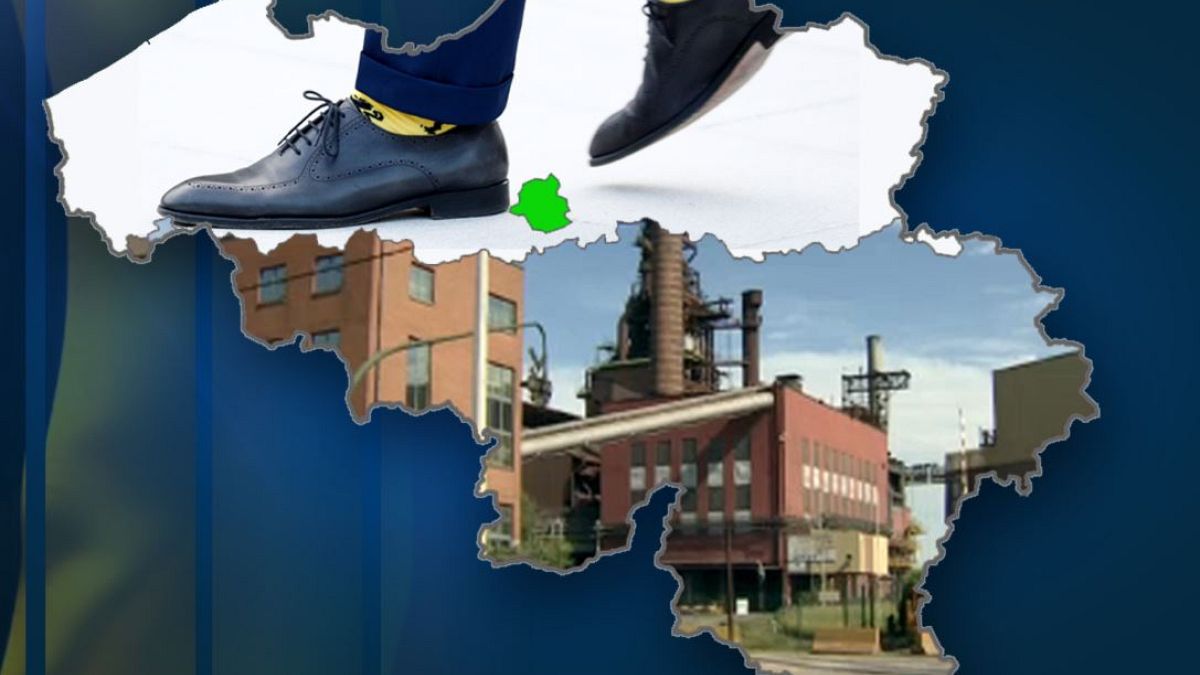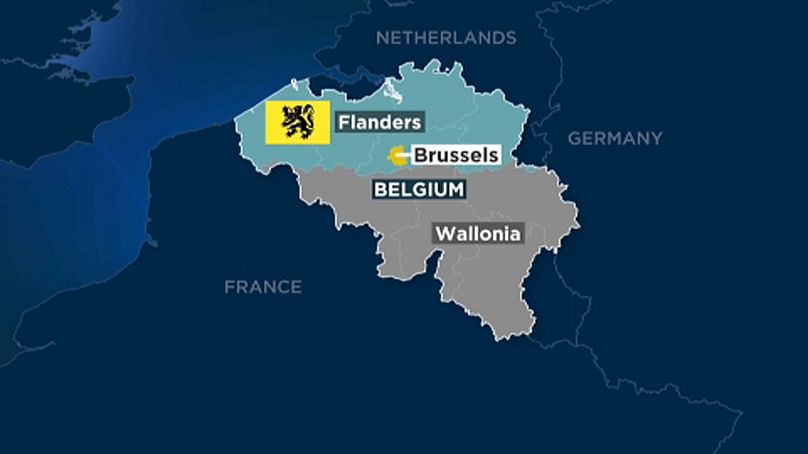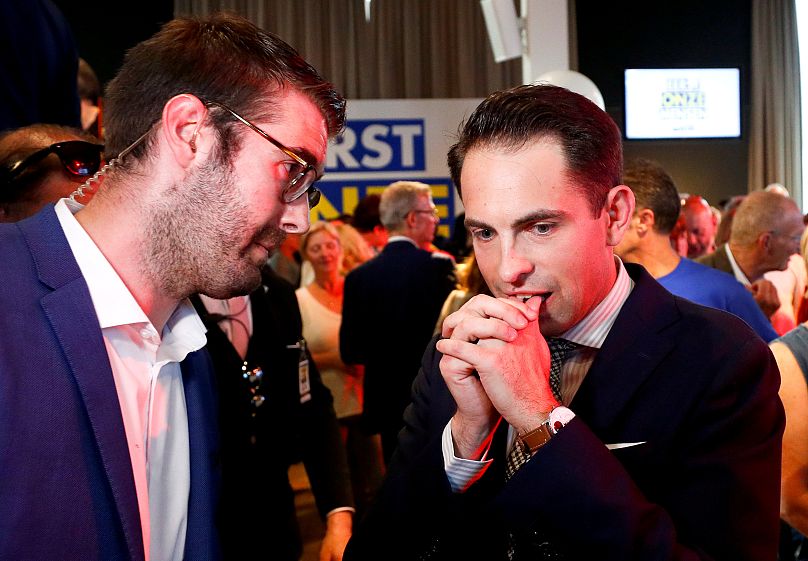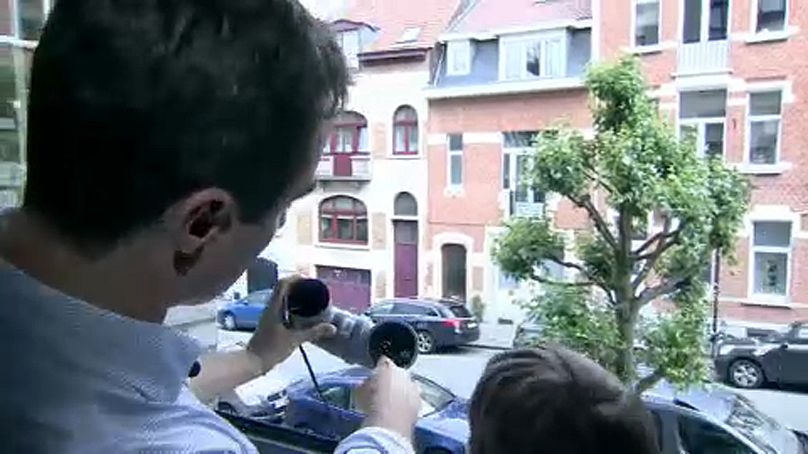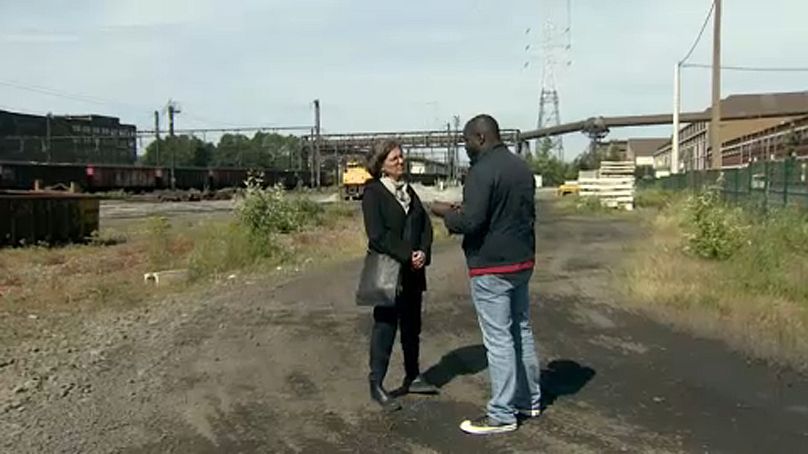It took the Belgium 541 days to form a government last time.
Belgium is often pointed to as a reflection of the broad political spectrum in Europe with its diverse — and even divided — regional politics. May's elections illustrated just that as the Green wave rode into the Brussels region, Socialists shined in Wallonia, and the far-right separatist group Vlaams Belang emerged with big gains in Flanders.
Belgium has yet to form a government, with the current deadlock a fresh reminder of how long negotiating periods can take in the country. In 2010 Belgium went a record-breaking 589 days without an elected government.
Euronews takes a look at each of Belgium's three regions and why it has backed a particular group.
Far-right gains in Flanders
The far-right Vlaams Belang (VB) party won with 23.9% of the votes in the city of Roeselare, located in the West Flanders region.
The party's supporters often speak about Islam, immigration and divisions in the country. Filip Deforche, a VB council member, said: “Islam is a danger for the country, for all Europe, so we have to fight that."
"We have to fight Islam, but in a democratic manner, not with guns or violence."
In the Flemish region, the VB scored 18% of the votes and second to the right-wing Nieuw-Vlaamse Alliantie (NV-A), a Flemish nationalist party.
Wouter Vermeersch, another VB member, said people's perceptions of his party are incorrect.
“I am not a Nazi," he said. "I am not a fascist. I am not any of these things that we are called. In fact, what we do is that we put our people first."
Resistance against mass immigration helped the VB campaign, as both legal and illegal immigration has recently surged in the Flanders region.
"The pace at which our region is getting more diverse is going too fast for us," Vermeersch said.
"Not only for my political party, but also for other people, the inhabitants here. People experience that their cities are changing too fast."
Perception of insecurity was also a motive for many VB supporters.
“I don't see a future in Belgium as a country," said VB politician Remko Quidousse. "I would like to see Flanders as a country of its own. I want to be a safe, working Flemish guy where it's possible to go out and have a drink or something without having to look behind you."
Flanders is the Dutch-speaking part of Belgium, making up the largest part of the country's population at 68%. There is also an economic gap between Flanders and the French-speaking Wallonia region. Flemish productivity per capita is about 13% higher than Wallonia, and Flemish wages are about 7% higher.
VB is calling to stop giving subsidies in poor municipalities and declaring independence.
"If you are in a marriage and you only have to pay the bills and your spouse does not want to cooperate in any way anymore, then it's maybe better to get a divorce," Vermeersch said.
Green wave in Brussels
In the Brussels capital region, the Greens emerged as the leading political force in regional elections this May — and it's the first time the environmentalists have performed so strongly.
Citizens in the Belgian capital have been instrumental in this swing towards green politics. Bertrand Wert lives near a main road and has taken the pollution problem into his own hands with a device.
"It's a homemade device to measure fine particles, those emissions from the town. So, what's useful about this, is that it allows me in real time on the internet, to follow all the stations measuring air quality," said environmental activist Wert.
Brussels has 11 public measuring stations but Wert says it is not enough.
"Air quality is very bad in Brussels and sometimes, several days, even weeks of the year, it is extremely dangerous," he said.
In the shared garden outside Wert's apartment, families of all walks of life are able to use the compost heap. All the neighbours pitch in and benefit from the fruits of their labour. The garden's success is not just measured by its growing ability, but also by the capacity to bring people together.
"You should try it, you'll see that food can bring us together. Often we don't speak the same language but we swap recipes and we can say how this vegetable is used where I'm from, why don't you try it. It's true that it creates links between people, making them closer," said Wert.
Ixelles is one local council in Brussels where the green wave has washed over. For the local mayor, green goals are right at the heart of big city living.
"Climate change, the climate crisis has filtered down into the urban environment. For the Greens, it's not just that climate is a priority but also social affairs, living together," said Christos Doulkeridis, local mayor of Ixelles.
"We are openly for living together, that doesn't fear the other, the foreigner, those who don't look like us, and we are more towards openness and tolerance."
They may have done well in Brussels, but a question mark hangs over whether the new electoral strength of the greens will translate into widespread political power in Belgium.
Wallonia: Socialists top region
The last coal mine in the southern Wallonia region was closed 30 years ago — and since then many industries have left the region.
Wallonia is economically weaker than the Flemish North and has seen the left-wing policies of councillors like Gaeten Bangisa driving votes.
"At the social level what happens is that we have a city with a lot of poverty, many people have difficulties, and so our main concern is to find funds to redevelop this city," said Bangisa, a councillor of Charleroi.
In the May elections, the far-left Parti du Travail made an impressive breakthrough, getting over 13% of votes, up 8 points from the previous election.
From Wallonia, the PTB has sent seven deputies to the federal parliament:
"We want to cut the salary of ministers and deputies in half so that we can really compare their standard of living with the standard of living of the average citizen," said Germain Mugemangango, a PTB councillor of Charleroi.
The party says it will fight the political establishment and defend the rights of workers.
"The question is whether all that is produced as wealth will serve the wellbeing of the vast majority of people, the 90%, or will it serve to enrich just a few," said Mugemangango.
Identity and regional politics
Belgium's fracture between the North and the South goes beyond the economy. There's also the prominent issue of identity.
"In Flanders, from an early age, the Flemish are educated to be Flemish first and foremost, whereas here in Wallonia we are rather linked to our city. We are from Charleroi, Liege, Namur," said Gaetan Banigsa, a councillor of Charleroi.
"But above all we are Belgian."
In Wallonia, it is the economic concerns of voters that saw the left succeed in May's elections.
Tough negotiations for the formation of a national government are only beginning — and Belgians may need to strap themselves in for a long wait.
In 2010, it took 541 days of negotiations until an agreement was made.
